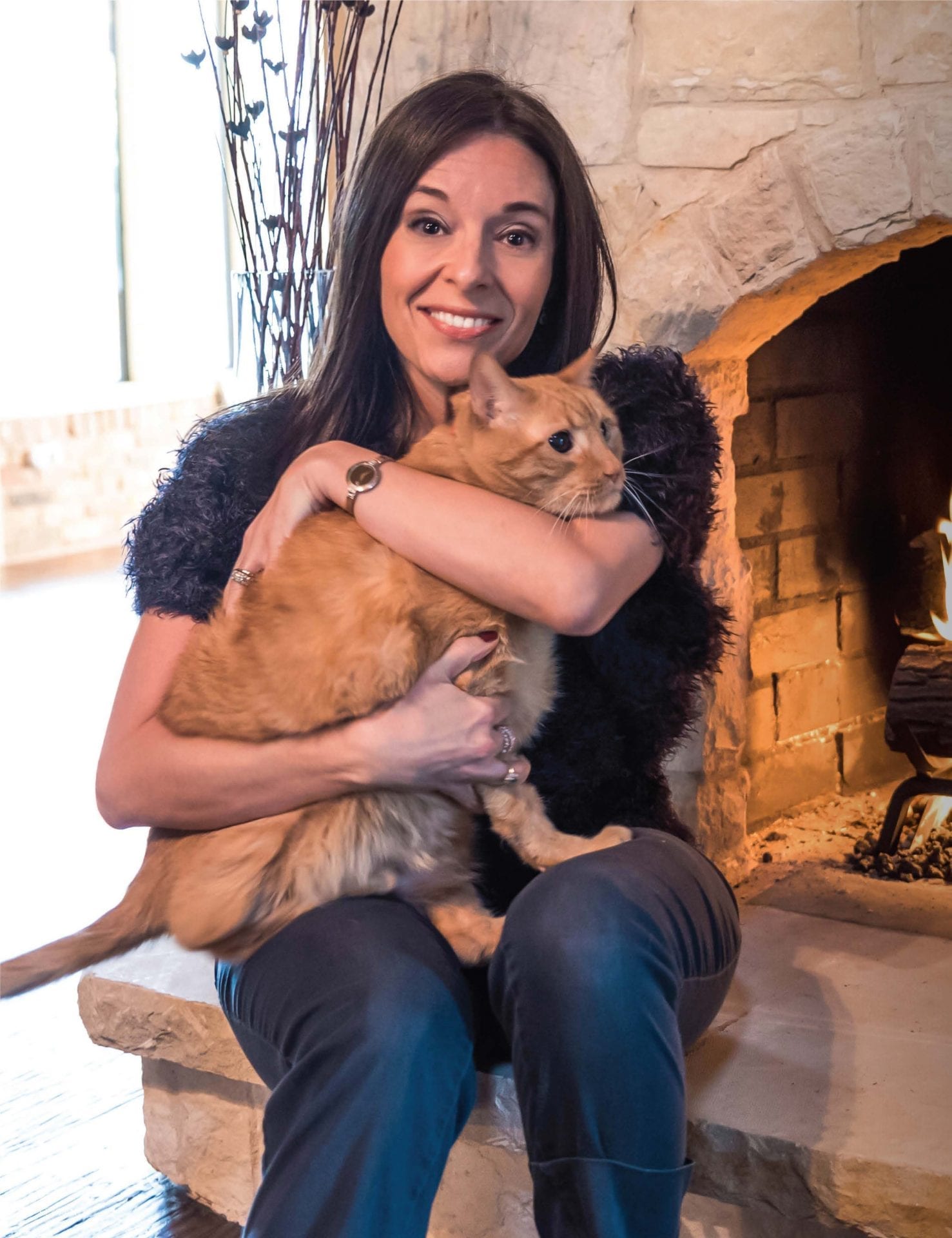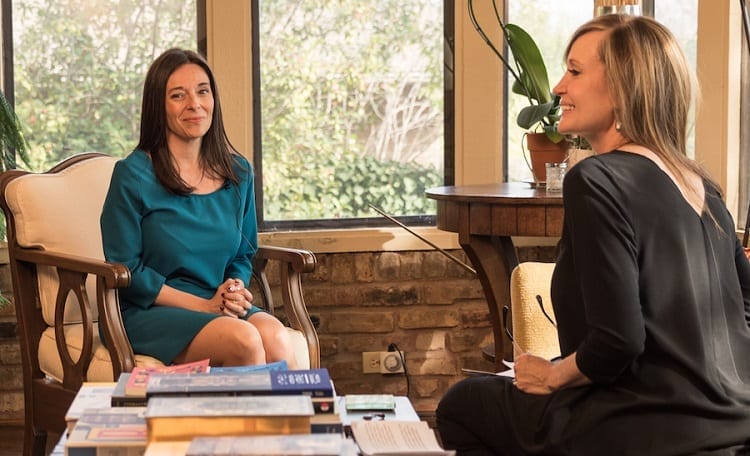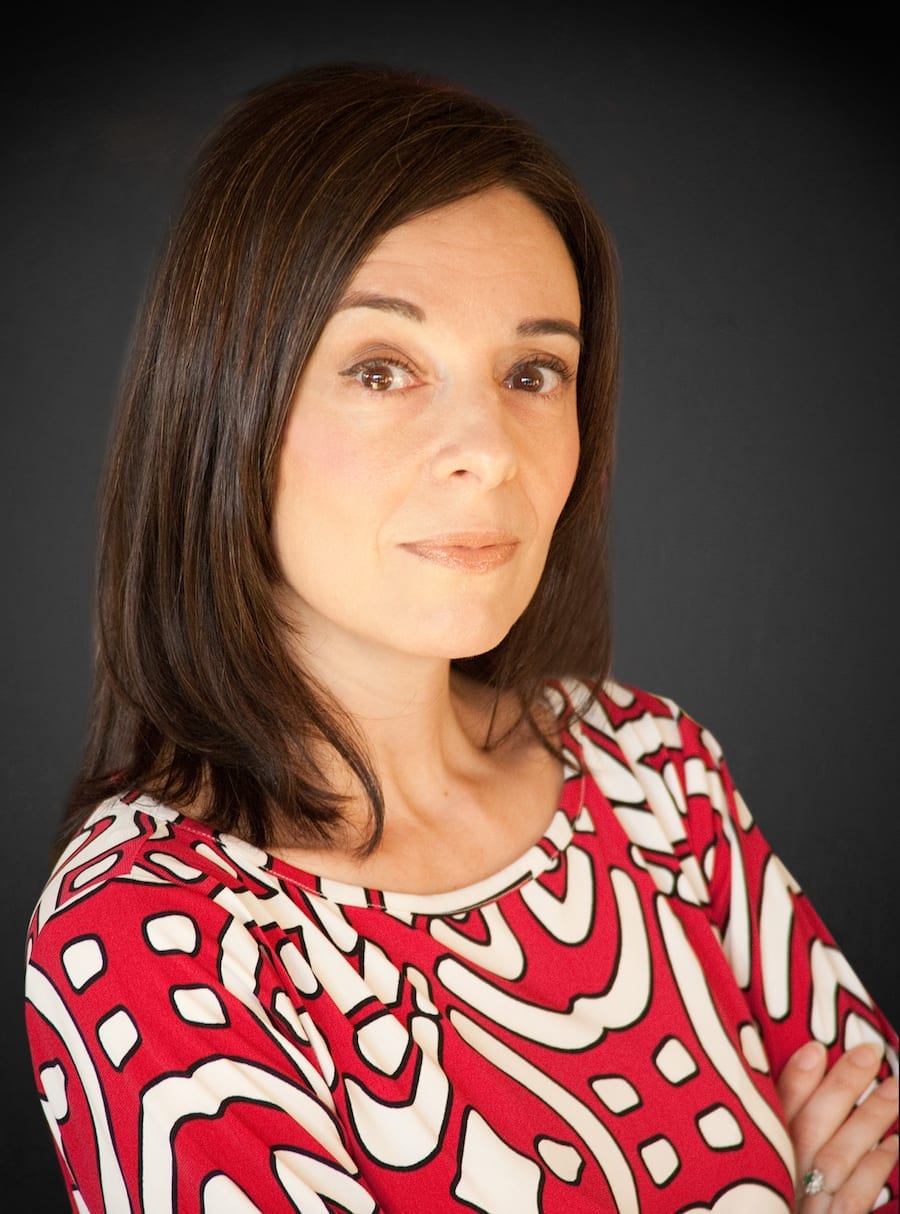Author & Interpreter
A lover of language, Fabiana Martinez left Argentina for the United States with only three suitcases and a dream. Nine years later, she became the interpreter for President George W. Bush and his wife.
You grew up in Buenos Aires, Argentina during a period of unrest, yet your father traveled globally. How did that affect you?
At that time, my father was a manager at a medical lab from the United States and had to travel a lot. I have some painful childhood memories because I missed him very much. At the same time, he taught me about the world. When he came to the United States, he brought me toys that nobody else had and told me stories that no one else could imagine. He always told me that this was a wonderful country; people here were absolutely generous and nice. In those tumultuous times in Argentina, that was not the message we heard. My dad told me something different about the United States and about the rest of the world than what I was hearing in daily living. He always said the world is bigger than this. Th at message became rooted into my brain. I was curious about all the places he visited, but mostly the United States. It was after all, where they made all the great toys that only I had.
Was your father’s life in jeopardy?
Not really the way you might think. I remember a guerilla group went to the company, and things were stolen, but I was protected from the truth. I am sure I do not know the whole story. Those were difficult times.
What precipitated your family’s moving from Buenos Aires to Spain?
Well, first, all my paternal family immigrated to Argentina from Spain in the early 1950s. Then 50 years later, my dad and my two grandparents, and now my mother, moved back to Spain. We all left Argentina because of the huge economic crisis of 2001. I was ready to explore the world. I felt that my professional career in Argentina had reached a place where I could no longer advance. My family returned to Spain, a place that they knew. I came here, to the United States.
What degree did you receive while studying in Argentina?
I studied linguistics and world literature. In Argentina, college is five years, so there were five years of reading voraciously and learning about linguistics, Latin, Greek, grammar, and the history of language.
What five separate languages do you speak?
English, Spanish, French, Portuguese, and Italian.
Which is your preferred language, other than your native language, to speak?
It depends where I am and with whom I am. Each situation might require a different language. I have a crazy quirk. I am always reading and have been since I was a little girl. I made a little pact with God as a child. I said, “I cannot die if I am reading a book.” So, the secret is, the moment I finish one book, I start another one. I have another crazy rule; I can never read two books in a row in the same language. So, I jump from language to language. I am always behind in literature because I try to remain current in all languages and in different literatures. For instance, I am reading a book in French now, and I’m in love with the language for the time being.

Before you came to the United States, what did you do?
From 1994 until I came to the United States in 2002, I taught languages.
Tell me about coming to the United States.
I came with three suitcases. I only knew one person in Dallas. He had been my student in Argentina and was generous enough to help me with the whole process. When I came here, he was extremely busy creating his own business. Even though he really didn’t have time to take care of me, he helped me to get started. I came here with three suitcases and nothing else really. I had very little money because all our savings basically disappeared overnight in Argentina; I had to start from scratch. I had to meet new people and create a business.
Tell me about your podcast.
That was a crazy adventure. Some years ago I started the podcast with two of my students, both of whom were very advanced. They said we should record the classes because they were having so much fun. It was a time when all podcasts were exploding in popularity. So, we created Spanish 360 with Fabiana. We created the podcast and a website. We also transcribed the podcasts and accompanying exercises. We were just having our class, but for the whole world. It was amazing because we didn’t realize how many people were downloading the booklets, many from places I did not recognize on a map.
Was that experience the impetus for your publishing?
The book was simmering in my heart long before the podcast. Really, the inspiration came from a friend who published a book. I thought, “Well, you know, she did it, and she did it so well. I could do it too.” I started writing the stories, and then everything finally fell into place. The book is called 12 Random Words, and there are two versions of the book. Both versions are bilingual. The first version is 12 Random Words/Doce Palabras al Azar, which is the English/Spanish version, and the second one is the 12 Random Words/Douze Mots au Hasard, which is the English/ French version. The book is a collection of 12, really 13, short stories. In the first half of the book, you have them in English, in the second, in Spanish or French.
Is it a teaching tool, or it is more a literary work?
It started as a literary work, as literature, but it can be used, as any piece of literature, to teach. When I teach, I tend to use more real literature than something that is predigested for students. My students are all smart, and I need to give them materials for smart people.
Where do you find happiness?
I feel complete when I am free. Freedom is the most important element of life. If you don’t have freedom, you have nothing. The poorest person who is free is richer than the richest person who’s not free. By freedom, I’m not only talking about whether you live under an oppressive government. It is the freedom you give to yourself. The freedom to accept that there are rules, but there are also rules that you can break. There are rules you need to create to be free. I was always creating stories as a child with a Barbie my father brought me. I created stories about her traveling, meeting people, and being independent. I think the sense of happiness back then came from the same things I find happiness in today. I’m not that different from when I was 3. I was mesmerized by languages when I was 3. There are recordings of me asking my dad how do you say this in English or that or that word. I’m not very different at all.

“I feel complete when I feel free. Freedom is the most important element of life. If you don’t have freedom, you have nothing.”
![]()
How did you experience the American dream when you served as an interpreter for President Bush and Mrs. Bush?
Thank you for asking about that experience because that is a precious moment in my heart. I came to the United States on November 1, 2002. Nine years later to the date, I interpreted for the first time for President Bush. I met him on November 1, 2011. At the time, I was working with The Bush Center, which did not even have a physical location. I met him that very day. Since then, I have interpreted for both President Bush and Mrs. Bush multiple times. It was a great honor. I would have never thought when I took that plane with three suitcases, no money, eating macaroni and cheese for weeks, that nine years later, I was going to interpret for the man who was the president. If someone had told me that, I would have said, “Nice dream.” When people ask me, “Do you believe in the American dream?” I say, “I am the American dream.” The American dream could be about money. It could be creating a big company. I have a tiny crumb of the American dream.
Do you have a personal relationship with the Bush family?
A little, but I remember a feeling I had. I was interpreting for President Bush and visitors from Cuba in his office. I was taken there through a private elevator, and everything was very secured. There were six people in that office: President Bush, Laura Bush, a person from The Bush Center, the two people from Cuba, and me. There were clearly a limited number of people. When I was interpreting and making this conversation happen, I felt that we were all equal because we were all needed in that meeting. We were, at the same time, as different as we could be. We were from different countries. We spoke different languages. We had different amounts of money, different cultures. We were all the same and all different. It was then that I felt we shared a kind of equality. I appreciated that we remained different, yet we remained ourselves. We kept our cultures, yet for that instant, we shared everything. We produced something together, and we were equally important because of what we were doing together.
What inspires you?
I’m always looking for that hidden story. Nature inspires me if it is related to some human interaction. What I read inspires me. What music I listen to can inspire me. Sometimes it is as simple as when I am driving in my car, just automatically allowing my head to look for stories. I get my inspiration everywhere.
What life lesson can you share with future students?
It’s tricky. I would tell them that when you have a great pain in your life, you can use that pain to create beauty. You need to use that pain like the little speck of dust that is inside the oyster, and then a pearl is created around it. I want them to understand that they should feel some pain. No one can prevent them from feeling the pain. So use that thing that breaks your heart in pieces and make something beautiful from it so that other people can benefit from that life experience. My idea of art is that it should be beautiful to be true and to be solid. From my very humble place, I strive to create some element of beauty. And yes, sometimes you need to dig in the mud and try to find a rough diamond.

©Travis Bell Photography. All Rights Reserved. For Beth Berstein for House 2014 Campaign Only. Mags Out.
“When people ask me, ‘Do you believe in the American dream?’ I say, ‘I am the American dream.’ The American dream could be about money. It could be creating a big company. I have a tiny crumb of the American dream.”
![]()

